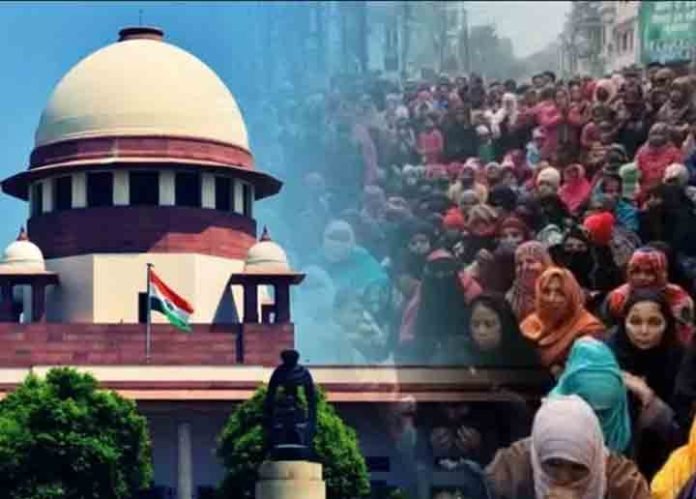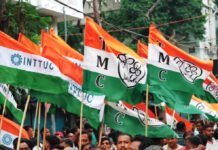The Supreme Court of India has sent a strong signal of vigilance and concern regarding the voter list intensive revision (S.I.R.) process currently underway in Bihar. In a pivotal development that has drawn national attention, the Apex Court made it clear that any large-scale exclusion of eligible voters from the draft list will trigger swift judicial intervention.
Hearing Adjourned to August 12-13: Petitioners Directed to File Response
In its latest proceedings, the Supreme Court postponed the hearing on the S.I.R. matter to August 12 and 13, allowing time for comprehensive submissions from all stakeholders. The court directed the petitioners—who had challenged the integrity of the revision exercise—to file their detailed responses by August 8, 2025. The matter holds significant weight as it pertains directly to the electoral rights of lakhs of Bihar residents, with alleged exclusions already surfacing.
The petitioners claim that the draft voter list, due for release on August 1, omits a substantial number of legitimate voters. This claim prompted the court to affirm its position as a judicial overseer of the process, stating unequivocally: “If a large number of people are excluded from the voter list, we will intervene immediately.”
No Stay on Draft Voter List Publication
Despite growing concerns from various quarters, the Supreme Court refused to halt the publication of the draft electoral roll. During the Monday hearing, the bench clarified that such a move would be premature at this stage. The Court emphasized its trust in the due diligence of the Election Commission, while simultaneously reiterating that its judicial radar remains activated on the matter.
This decision effectively permits the Election Commission of India (ECI) to proceed with the scheduled release of the draft list, even as allegations of procedural flaws and exclusions loom large.
Aadhaar Inclusion Resurfaces: Court Recommends Reconsideration
One notable aspect of the Supreme Court’s stance was its reiteration to the Election Commission to evaluate the inclusion of Aadhaar as a supporting document in the voter verification process. Although not legally mandatory, the use of Aadhaar could strengthen transparency and assist in minimizing erroneous exclusions.
The Court’s request is rooted in the aim to streamline identification and potentially resolve duplication issues. By nudging the ECI towards integrating Aadhaar, the Court seeks to ensure that no legitimate citizen is disenfranchised in the name of administrative cleanup.
The Petitioners’ Argument: Alleged Mass Disenfranchisement
The petitioners in the case have presented grave concerns regarding the S.I.R. process. They argue that:
Thousands of marginalized and economically backward citizens may have been inadvertently excluded.
The methodology employed lacks sufficient public awareness and accessibility, particularly in rural regions.
Verification agents reportedly skipped door-to-door visits, leading to missing or inaccurate entries.
There is no clear provision to remedy wrongful deletions in real time.
This has fueled fears that a large section of Bihar’s population could be disenfranchised, especially in areas dominated by Scheduled Castes, Scheduled Tribes, minority groups, and migrant laborers.
Supreme Court’s Message: Vigilance and Balance
The Supreme Court’s observations strike a tone of both judicial restraint and proactive readiness. While declining to stall the electoral revision, the justices underscored the Court’s role as a watchdog, ready to step in should fundamental rights come under threat.
By asserting that any major exclusion will warrant immediate action, the Court has reassured the electorate that constitutional protections remain intact. This balance between non-interference and vigilance reflects the Supreme Court’s evolving approach to electoral disputes—marked by both institutional respect for the ECI and commitment to democratic safeguards.
Electoral Integrity in Bihar: Why It Matters
Bihar has long been viewed as a crucial battleground state in Indian politics. With its vast population and socio-political diversity, electoral processes in the state often serve as a litmus test for nationwide reforms. Any discrepancy or exclusion here could have far-reaching consequences, not only in terms of governance but also in eroding public trust in the democratic system.
The current S.I.R. exercise is reportedly aimed at purging duplication, verifying new voters, and updating addresses. However, questions around transparency, training of enumerators, and the timeline of grievance redressal have raised eyebrows.
Call for Public Participation and Oversight
In this context, it becomes crucial that citizens actively verify their electoral status, particularly once the draft is published. Legal experts suggest that the public display and challenge window, typically allowed for corrections, must be well-publicized and easily accessible, including online portals, helplines, and village-level facilitation booths.
Civil society organizations and political parties have also been urged to monitor the process vigilantly, ensuring that voter suppression by omission does not become a backdoor reality.
Looking Ahead: August Will Be Crucial
With the Supreme Court slated to reconvene on August 12, and the finalization of voter lists expected shortly after, the coming weeks will be decisive for electoral transparency in Bihar. The ECI’s response, the petitioners’ evidentiary submissions, and potential real-world consequences on the ground will all shape the next steps in this judicially sensitive issue.
As we move forward, the following questions remain key:
How will the Election Commission address allegations of exclusion and procedural lapses?
Will the Supreme Court find evidence of mass disenfranchisement compelling enough to intervene?
What measures will be put in place to safeguard the voting rights of those mistakenly left out?
Conclusion: The Ballot Must Be Universal
At its core, the Indian Constitution promises universal adult suffrage. The Supreme Court’s latest stance reinforces that this right is non-negotiable. As the S.I.R. process continues, judicial oversight and public vigilance must go hand-in-hand to ensure that no citizen is left without a voice at the ballot box.
The unfolding case is not merely about numbers on a list; it is about the integrity of India’s democratic fabric. We remain committed to closely monitoring this matter and amplifying every voice that demands inclusion, transparency, and justice.















